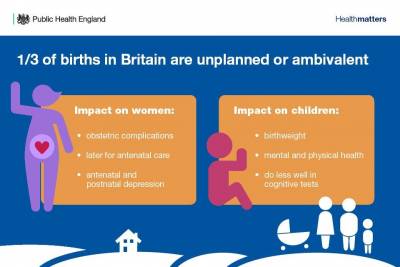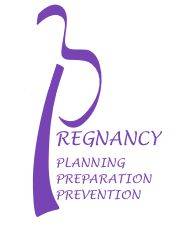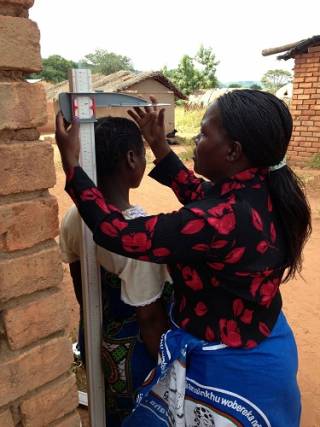
During a woman’s life, there may be times when she wants to avoid pregnancy, times when she would like to become pregnant and times when she is unsure. There are lots of things that women and their partners can do to realise these intentions, but it’s often difficult to get the right support at the right time.
At the moment, conversations about planning pregnancies are not the norm. This means that opportunities to advise women who want to become pregnant on how to improve their own health and chances of a healthy pregnancy are missed. At the same time, the lack of tailored advice on contraception results in unplanned pregnancies; in the UK it is estimated that around 45% of pregnancies are unplanned.
Our Work
- Measuring pregnancy intention

The Sexual and Reproductive Health Research team in the Institute of Women’s Health is an internationally renowned centre of expertise on the measurement of pregnancy planning. Dr Geraldine Barrett, Principal Research Associate, developed the London Measure of Unplanned Pregnancy (LMUP), a psychometrically validated measure of pregnancy intention now in use worldwide (see www.lmup.org.uk for more information). Dr Jennifer Hall (Clinical Associate Professor) has extensive experience of validating, using and analysing the LMUP. Together, Dr Barrett and Dr Hall provide methodological advice and support to those wishing to evaluate and use the LMUP around the world, including Mexico, Brazil, Nigeria, Japan, Italy, France, Germany, Mozambique and Australia.
They regularly update the LMUP handbook/website and publish methodological research relating to the LMUP. For example, there is an update to the wording of the LMUP to accommodate newer family forms, including women who choose to become pregnant without a partner and same sex couples, which is available here:
Barrett, G., Nolan, E.M., Gürtin, Z.B., Stephenson, J., Hall, J.A. (2020). London Measure of Unplanned Pregnancy and newer family forms: an update. Journal of Epidemiology and Community Health, doi:10.1136/jech-2020-214419
As well as work exploring the use of the LMUP in men:
Barrett G, Hall JA, Howden B, Patel D, Shawe J, Stephenson J. 2020 Evaluation of the psychometric properties of a version of the London Measure of Unplanned Pregnancy for women's partners International Journal of Men's Social and Community Health 3;1:e65-e77 Abstract and full pdf
Current implementation projects include a collaboration with the University of Sydney, Australia, on a pilot of the LMUP in antenatal care, working with OHID on making the case for the LMUP to be used routinely in antenatal care to provide national surveillance of unplanned pregnancies in England, and providing input towards the same system in Northern Ireland.
- The Pregnancy Planning, Preparation and Prevention P3 - study

Dr Jennifer Hall started her NIHR Advanced Fellowship in January 2018. This research aims to help women have babies by choice, not by chance, to attain the best health they can before becoming pregnant, and to prevent poor pregnancy outcomes, particularly in women with unplanned pregnancies.
In October 2018 she recruited a cohort of 1000 non-pregnant women to test a set of quick and simple questions to determine whether women are thinking about becoming pregnant in the next year. Follow up of these women was completed in November 2019 and several papers have now been published Evaluation of the Desire to Avoid Pregnancy Scale, preprinted Predictive ability of the DAP scale and Clinical Considerations for the DAP scale or submitted based on these data.
In 2022 she interviewed women and health professionals about which questions could be used, where and when, to support women either to prepare for a pregnancy (see Preconception care) or which methods of contraception might be right for them (see Supporting Choice of Contraception). In this way pregnancy planning can be improved and unplanned pregnancies and abortions reduced.
She is also working with clinical colleagues at University College London Hospital, Guys, King’s and St Thomas’ NHS Trust and Homerton Hospital on piloting the inclusion of the London Measure of Unplanned Pregnancy in routine antenatal care, early pregnancy units and termination services. It is hoped that this will provide evidence for a national roll out of the LMUP and the development of a national surveillance system for pregnancy planning.
For more information, please see the study website https://p3-study-ucl.co.uk/
- Pregnancy intention in Brazil

Dr Jennifer Hall and Dr Geraldine Barrett work with Dr Ana Borges, an Associate Professor at the University of Sao Paulo Public Health Nursing Department, Brazil on a range of projects on measurement of pregnancy intention and contraception use. Her interest is sexual and reproductive health, with a focus on understanding contraceptive use patterns among Brazilian women, in particular, the relationships between contraceptive behaviour and unintended pregnancy, since the use of both modern contraceptives and unplanned pregnancies are high in Brazil.
Dr Borges visited the team in late 2019 on a UCL-funded Global Engagement Grant where we learnt more about each other’s work in the area of pregnancy planning. In 2020 we translated the Desire to Avoid Pregnancy Scale into Brazilian Portuguese, tested it through cognitive interviews and are implemented it in a mirror of Dr Hall’s P3 study in Brazil in 2021. Given the timing we took the opportunity to explore how COVID-19 affected women’s intentions regarding a future pregnancy and contraception use. This work is under review for publication and we are now working on the evaluation of the Brazilian Desire to Avoid Pregnancy Scale together.
- Completed Projects
- Pregnancy intention in Malawi

Dr Jennifer Hall, PhD. What are the relationships between the degree of pregnancy intention and key neonatal and maternal outcomes in the Mchinji district of Malawi?
This research aimed to explore the impact of unplanned pregnancies on the health of women and their babies in Malawi. We tested a new measure of how planned or unplanned a woman’s pregnancy is, known as the London Measure of Unplanned Pregnancy, and found that it worked well in Malawi. Using this we discovered that women in Malawi have very similar plans about pregnancy to women in the UK. Given that nearly half of women plan their pregnancy to some extent, there is scope to provide support to women planning a pregnancy to improve their chances of a healthy pregnancy.
We also identified three groups of women who were at higher risk of having an unplanned pregnancy. These were young, unmarried women having their first pregnancy; older, married women who either already had all the children they wanted or were having another pregnancy sooner than desired; and women who had experienced depression or violence. This information can be used to target family planning services to women at risk of unplanned pregnancy.
Finally, we discovered that the more unplanned a woman’s pregnancy is, the less likely she is to access care during and after her pregnancy. She is also at higher risk of experiencing postnatal depression and stillbirth. To try to prevent these outcomes we need to be able to identify women antenatally who are experiencing an unplanned pregnancy and refer them to appropriate support services.




Ugandan human rights based measure of family planning
Dr Jennifer Hall, Dr Geraldine Barrett and Prof. Judith Stephenson provided advice to The Evidence Project (http://evidenceproject.popcouncil.org) on developing a rights based measure of family planning, using data from Uganda. The Evidence Project brings together organisations such as Population Council and the International Planned Parenthood Federation to use evidence to improve family planning services and policies.
 Close
Close

